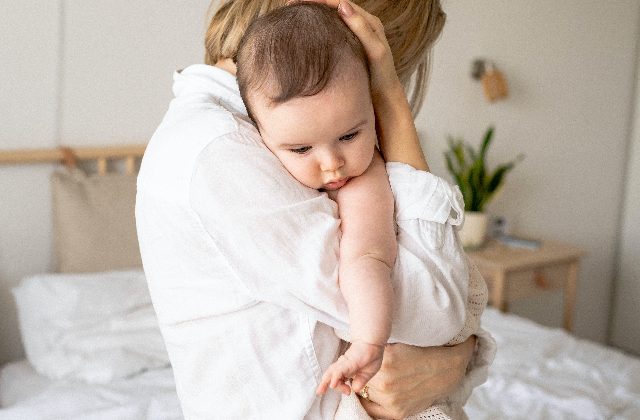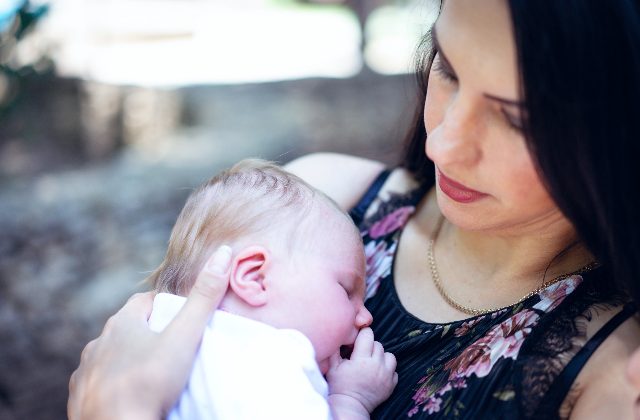
Hey there, mama! So, you’ve noticed baby will not burp after feeding? Please don’t fret, it happens more often than you think! Burping is like that elusive skill some babies master right away, while others take their sweet time to catch on. But hey, we’re in this together, and I’ve got your back!
Let’s chat about why your baby might be holding onto those burps and what you can do to help them out. Just remember, every baby dances to their tune, so what clicks for one might not for another. But armed with some know-how and a handful of tricks, we can tackle this together.
First off, it’s okay if your baby will not burp after feeding. Some little ones just don’t feel the need to release those air bubbles as frequently or vigorously as others. But don’t worry, we’ll sniff out those subtle signs that they might need a little burp break and figure out some alternative ways to keep them comfy.
So, take a breather, mama, and let’s dive into the wonderful world of baby burping. You’re doing fantastic, and I’m here cheering you on every step of the way!
Why It Is Necessary To Burp Your Baby

The Importance of Burping
Burping isn’t just a cute little ritual; it’s a crucial aspect of infant care that packs a punch for your baby’s well-being. Let’s break down why it’s such a big deal.
Immediate Comfort and Relief
When your baby feeds, they’re not just getting the good stuff; they’re also swallowing some pesky air along the way. This trapped air can spell trouble, leading to discomfort, bloating, and gas. But fear not, because burping swoops in to save the day! By letting out those trapped air bubbles, burping gives your baby instant relief and ensures they’re not left feeling like a balloon about to pop.
Minimizing Spit-Up Mishaps
Nobody likes a surprise spit-up session, least of all your baby! But when air decides to hang out in their tummy, it can play a mean game of “push and shove” with their milk or formula, causing it to make a not-so-fashionable reappearance. That’s where burping steps in to ease the pressure, keeping the spit-up sessions to a minimum and your baby feeling cozy post-feed.
Promoting Healthy Digestion
A happy tummy equals a happy baby, and burping plays a starring role in ensuring just that. When air crashes the party in your baby’s stomach, it can throw a wrench into their digestion plans, leading to tummy troubles like indigestion and discomfort. But fear not! Burping to the rescue once again, ensuring their digestive system runs smoother than a well-oiled machine. Say goodbye to issues like reflux and excessive gas, and hello to happy tummies!
Ensuring Safety First If Baby Won’t Burp After Feeding
Safety always comes first, especially when it comes to your little one. If your munchkin swallows too much air and decides to take a detour into their airways, it’s a recipe for coughing, choking, and all-around scary stuff. Regular burping sessions help keep those airways clear, ensuring your baby breathes easily during and after feeding time.
Establishing Healthy Feeding Habits
But wait, there’s more! Burping isn’t just about the here and now; it’s also setting your baby up for some top-notch feeding habits down the road. By making burping a part of their routine from day one, you’re teaching them the art of pausing, pacing themselves, and avoiding the dreaded overeating saga. It’s all about laying down the groundwork for healthy habits as they grow.
So, there you have it! The lowdown on why burping is the unsung hero of baby care. Remember, every baby’s different, so don’t be afraid to mix it up and find the burping technique that’s just right for your little one. Happy burping!
Baby Will Not Burp After Feeding? Ways To Make Baby Burp
Helping your baby burp isn’t just a cute ritual; it’s vital for their comfort and digestion. Let’s dive into why a baby will not burp after feeding and how you can make it easier for your little one:
Over-the-Shoulder Burping
Get comfy with your baby nestled against your shoulder. Pat or rub their back gently to coax out those burps. It’s a classic move that’s often effective and comforting for both of you.
Sitting Burping
Take a seat and settle your baby on your lap. Support their chest and chin as you pat their back. This position uses gravity to your advantage and can be great for babies who struggle to burp in other positions.
Face-Down on Your Lap
Lay your baby face-down across your lap, supporting their chin and chest. Give their back a gentle rub or pat to help release any trapped air. This position provides gentle pressure on their tummy, encouraging burping.
Face down on a Firm Surface
Place your baby on their tummy on a firm surface like your lap or a changing table. Gently pat or rub their back to stimulate burping. This position can be helpful, especially for babies with reflux issues.
Rocking or Gentle Bouncing
Get moving while holding your baby upright. Sway, rock, or gently bounce them to help release trapped gas and promote burping. It’s not only effective but also soothing for many babies.
Baby Carrier or Sling
Strap on a baby carrier or sling for some hands-free burping action. The gentle pressure can help relieve gas and discomfort. Just ensure it’s properly adjusted for your baby’s safety and comfort.
Bicycle Legs
Give your baby’s legs a workout by gently moving them in a cycling motion while they’re on their back. This simple exercise stimulates their digestive system and can relieve gas.
Burp Breaks During Feedings
Whether you’re bottle-feeding or breastfeeding, take regular breaks to burp your baby. This helps release trapped air and prevents excessive gas buildup, making feeding sessions more comfortable.
Keep Upright After Feeding
Hold your baby upright for a bit after each feeding to help prevent reflux and gas buildup. It’s a great time to bond or engage in calming activities while keeping discomfort at bay.
Experiment with Feeding Techniques
If your baby struggles with gas or colic, try different feeding positions or specialized bottles to minimize air intake. Pay attention to their cues and find what works best for them
Signs That Your Baby Needs Burping

Fussiness and Irritability
Is your baby suddenly cranky during or after feeding? That might be their way of saying, “Hey, I need a burp!” Trapped air can lead to discomfort, and burping is the magic remedy.
Excessive Hiccups
Hiccups are cute, but too many could signal trapped air in their tummy. A good burp can often put those hiccups to bed and keep them from turning into a marathon.
Squirming and Restlessness
When your little wiggle worm starts squirming during feeding time, they might be trying to shake off some gas. A quick burping session can help ease their discomfort.
Excessive Spit-up or Reflux
If your baby’s spitting up more than usual or showing signs of reflux, it could be because of trapped air. Burping can be their ticket to a less messy, more comfortable feeding experience.
Extended Feeding Sessions
Taking forever to finish a bottle or breastfeed? Trapped air might be causing interruptions. A mid-feed burping break could help speed things up and keep your baby content.
Clenching Fists or Arching Back
Watch out for those little telltale signs of discomfort, like clenched fists or a back arch. Burping can work wonders in relaxing the body and easing any trapped air troubles.
Gassy Sounds
If your baby’s tummy sounds like a tiny orchestra of bubbles, it’s probably time for a burp! Those gassy noises mean there’s air that needs to make its grand exit.
Excessive Swallowing
Is your baby gulping down their milk like it’s going out of style? They might be swallowing more air than milk, which calls for a good burping session to release those pesky air bubbles.
So, keep an eye out for these signs, and when in doubt, give burping a try! Your baby’s comfort is worth it.
When To See A Doctor If Baby Will Not Burp After Feeding
Weight Loss or Inadequate Weight Gain
Consistent refusal of the bottle leading to insufficient milk intake can result in weight loss or inadequate weight gain. This signals a potential underlying issue requiring medical attention.
Persistent Crying and Fussiness
Excessive fussiness or inconsolable crying during bottle feeding may indicate discomfort or pain, such as acid reflux or an ear infection. Medical evaluation is crucial in such cases.
Dehydration
Refusing the bottle can quickly lead to dehydration in infants. Watch out for signs like fewer wet diapers, dry mouth, sunken fontanelle, and lethargy, which warrant immediate medical attention.
Lack of Wet Diapers
A sudden decrease in the number of wet diapers or an inadequate amount of wet diapers per day may indicate a problem requiring medical evaluation.
Other Associated Symptoms
If bottle refusal is accompanied by symptoms like fever, diarrhea, vomiting, cough, or other unusual signs, consulting a doctor is advisable to rule out underlying illness.
Seeking Medical Guidance
In these situations, reaching out to a pediatrician or healthcare provider is essential. They can assess the baby’s health, identify potential issues, and offer appropriate guidance or treatment. Prompt attention and intervention ensure the baby’s health and well-being.
Last Words
In conclusion, parents need to understand that the inability of a baby to burp after feeding is usually not a cause for major alarm. Each baby is unique and may have their patterns and preferences when it comes to burping. While burping is important for releasing trapped air and preventing discomfort, some babies may not burp as frequently or easily as others.
Parents can try various strategies to help alleviate discomfort in a baby who won’t burp. Different burping positions, gentle back patting or rubbing, and providing a gentle upright motion can aid in releasing trapped air. Allowing sufficient time between feeding and sleep can also help minimize the risk of reflux and gas buildup.
However, if a baby consistently shows signs of discomfort, such as persistent fussiness, excessive crying, or difficulty sleeping, it may be advisable to consult a healthcare professional for further evaluation. They can provide guidance and rule out any underlying issues that may be causing the discomfort, such as acid reflux or lactose intolerance.
It’s important to be patient, observe your baby’s cues, and understand that their digestive system will mature over time. As your baby grows, burping may become less of a concern. Creating a nurturing and supportive environment for your baby and seeking medical advice when needed will help ensure their well-being.
Leave a Reply
You must be logged in to post a comment.